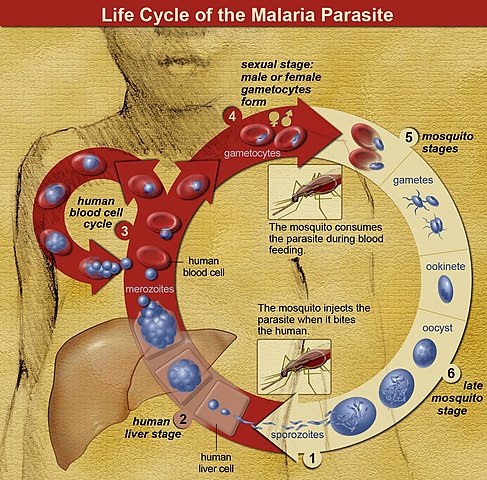Compound causes self-destruction of drug-resistant malaria parasites
Date: 6.6.2022
While improvements continue to be made in anti-malarial drugs and vaccines, the ability of the parasites that cause the disease to mutate and develop resistance to treatment is a chief concern for public health officials.
 Scientists have discovered a highly-promising new weapon that could help counter this problem, demonstrating how a novel compound that stealthily infiltrates malaria parasites can cause them to self-destruct, importantly, doing so in types with resistance to currently available drugs.
Scientists have discovered a highly-promising new weapon that could help counter this problem, demonstrating how a novel compound that stealthily infiltrates malaria parasites can cause them to self-destruct, importantly, doing so in types with resistance to currently available drugs.
The study was led by scientists at the University of Melbourne, who point to the need for new treatments to help curb the hundreds of thousands of malaria-related deaths each year.
Enter a class of chemicals called nucleoside sulfamates, which the scientists screened to find one in particular that inhibited the growth of the malaria parasite called Plasmodium falciparum, while leaving healthy cells unharmed. Called ML901, the way the molecule does this is as interesting as it is scientifically significant, dismantling the parasite in a way that opens up new avenues for attack from future therapeutics.
"ML901 works by an unusual reaction-hijacking mechanism," said co-lead author Professor Leann Tilley. "Imagine a stealth weapon that can be used to launch a self-destruct attack on your vehicle – slamming on the brakes and cutting the engine. ML901 finds a particular chink in the machinery that the malaria parasite uses to generate the proteins needed to reproduce itself and stops it doing so."























